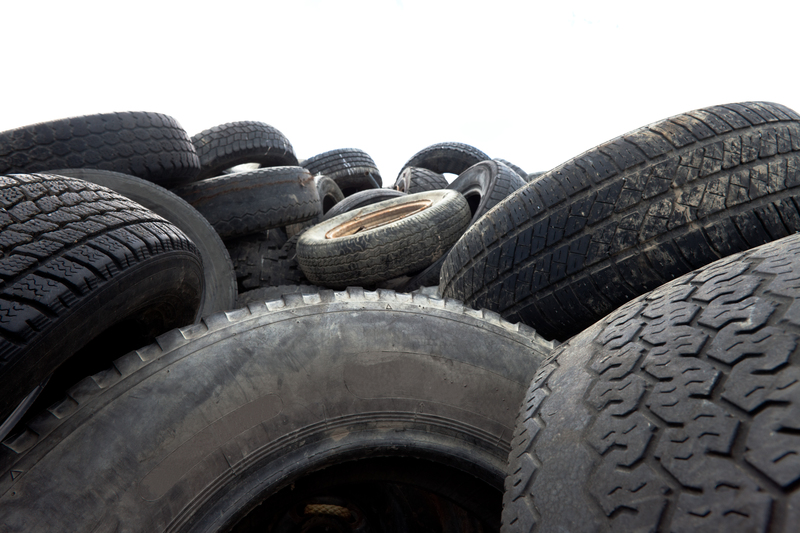Eco-Friendly Tips for Reducing Plastic Use
Plastic pollution poses a significant threat to our environment, contaminating oceans, harming wildlife, and impacting our health. By integrating eco-friendly habits into our daily routines, we can drastically reduce plastic use and help preserve our planet. Whether you're a beginner or a sustainability enthusiast, this comprehensive guide offers actionable tips to cut down on plastic, using a variety of strategies and sustainable alternatives.
Why Reducing Plastic Use Matters
Globally, over 300 million tons of plastic are produced every year, with much of it ending up in landfills or waterways. Unlike organic materials, plastic takes hundreds of years to decompose, leading to vast environmental repercussions, from harm to marine life to the leaching of toxins into soil and water. By reducing our reliance on plastic, we contribute to a healthier ecosystem and encourage the shift towards a circular, sustainable economy.

Practical Eco-Friendly Tips for Reducing Plastic Use at Home
1. Switch to Reusable Bags
- Carry sturdy, reusable shopping bags made from cloth, jute, or recycled materials every time you shop.
- Keep compact foldable bags in your car or backpack for unexpected purchases.
*Fact: Many single-use plastic bags are used for an average of 12 minutes, yet take hundreds of years to decompose. Reusables can make an enormous impact over time.*
2. Opt for Refillable Water Bottles
- Invest in stainless steel, glass, or BPA-free plastic bottles for water and beverages.
- Install a water filtration system at home to avoid buying bottled water.
Tip: Many cafes and public spaces now offer refill stations--take advantage of these services to reduce plastic consumption.
3. Choose Bulk and Package-Free Products
- Shop at stores that offer bulk bins for items like grains, legumes, nuts, and spices.
- Bring your own reusable containers and bags to reduce plastic packaging waste.
Many health food stores and co-ops are happy to weigh your containers before you fill them with bulk items.
4. Replace Plastic Wraps with Sustainable Alternatives
- Use beeswax wraps, silicone lids, or glass containers for food storage.
- Switch to cloth covers or plates to seal bowls instead of using cling film or plastic wrap.
By using these alternatives, you minimize your plastic footprint and avoid microplastics leaching into food.
5. Rethink Personal Care and Cleaning Products
- Choose bar soaps (for body, hair, and dishes) packaged in paper or cardboard.
- Look for brands that offer refillable cleaning solutions and concentrated tablets.
- Make your own cleaners using simple ingredients like vinegar, baking soda, and essential oils.
Eco-Friendly Plastic Reduction Tips for the Workplace
1. Bring Your Own Reusables
- Keep a set of reusable utensils, a coffee cup, and a water bottle at your desk.
- Choose a lunchbox made from stainless steel, bamboo, or glass for packed meals.
2. Say No to Single-Use Plastics at Meetings and Events
- Encourage colleagues to opt for pitchers of water and glasses instead of bottled drinks during meetings.
- Push for compostable or reusable dishware at office events and parties.
3. Advocate for Company Sustainability Initiatives
- Recommend switching to bulk office supplies to cut back on individually wrapped plastic items.
- Propose a company-wide "Plastic-Free Challenge" or organize educational workshops to inspire change.
Green Shopping Habits: How to Avoid Plastic in Retail
1. Read Labels and Choose Wisely
- Look for packaging made from recycled, biodegradable, or compostable materials.
- Support brands with clear commitments to plastic-free packaging.
2. Shop Local and Seasonal
- Frequent farmers' markets, where produce is often offered without any plastic wrapping.
- Buy seasonal fruits and vegetables that require less packaging for preservation and transport.
3. Use Refillable and Returnable Options
- Choose products with refill stations for cleaning, personal care, or food items.
- Participate in bottle return schemes that reduce single-use bottle waste.
Reducing Plastic Use When Dining Out or On-the-Go
- Bring a reusable straw: Stainless steel, silicone, or bamboo straws are durable and eliminate the need for plastic ones.
- Refuse unnecessary extras: Politely decline plastic cutlery, napkins, or condiment sachets if you don't need them.
- Ask for drinks without a straw: Most staff are happy to oblige if you make a simple request.
- Carry your own takeaway container: Some eateries welcome customers bringing containers for food waste reduction.
Eco-Friendly Tips for Reducing Plastic Use in the Bathroom
- Switch to bamboo toothbrushes and biodegradable dental floss.
- Choose toilet paper in paper packaging rather than plastic wrap.
- Opt for refillable shampoo and conditioner bars instead of bottles.
- Use razors with replaceable blades instead of disposable ones.
Eco-Friendly Plastic Reduction in the Garden
- Start a compost bin to reduce trash bag usage.
- Re-purpose plastic containers as plant pots, or choose biodegradable alternatives.
- Use natural twine instead of plastic ties for staking plants.
- Avoid buying gardening supplies packaged in unnecessary plastics.
Encouraging Children to Use Less Plastic
Teaching kids eco-friendly habits early helps form a lifetime of awareness.
- Choose plastic-free school supplies like metal lunchboxes and wooden pencils.
- Craft with natural materials rather than plastic-based items.
- Read books or watch documentaries together about ocean conservation and sustainability.
- Organize local litter clean-ups as a fun family activity.
Sustainable Alternatives to Common Plastics
Finding effective alternatives is key to lowering plastic consumption. Here are several eco-friendly replacements for single-use plastics:
- Food Storage: Beeswax wraps, fabric bowl covers, glass jars.
- Bags: Cloth tote bags, paper bags, or woven baskets.
- Straws: Stainless steel, glass, or bamboo.
- Cups: Reusable mugs made of stainless steel, glass, or bamboo fiber.
- Cutlery: Wooden or bamboo utensils for on-the-go eating.
- Toothbrushes: Bamboo or recycled plastic handle toothbrushes.
- Packaging: Shop from brands using cardboard, paper or compostable materials.
Recycling and Proper Plastic Disposal
Not all plastics can be recycled, and misinformation can lead to contamination of recycling streams. Here's how to recycle smarter:
- Learn which plastics are accepted in your area's recycling program (usually plastics #1 and #2 are widely accepted).
- Rinse containers before recycling to eliminate food residue.
- Never recycle plastic bags in regular curbside bins--bring them to designated collection points instead.
- Reduce prior to recycling: prioritize eliminating plastic waste wherever possible.
*Effective recycling is essential, but remember the eco-friendly mantra: "Reduce, Reuse, Recycle"--and reduction comes first!*
Supporting Plastic-Free Movements and Legislation
- Support local bans: Advocate for and follow plastic bag bans, straw bans, and other local sustainability initiatives.
- Join clean-up efforts: Participate in or organize beach, park, or neighbourhood clean-up events.
- Vote with your wallet: Choose to spend money with brands committed to sustainable packaging and ethical sourcing.
Through collective action and informed daily habits, we can drive significant change towards a plastic-free future.
Frequently Asked Questions (FAQ) on Plastic Reduction
What are the top three ways to reduce plastic use at home?
The simplest ways to start are: Switch to reusable bags, use refillable water bottles, and purchase products with minimal or no packaging.
How can I avoid microplastics?
Choose natural fabrics over synthetics, avoid personal care products with plastic microbeads, and install a laundry filter to catch microfibers.
Are biodegradable plastics a good alternative?
Biodegradable plastics often require industrial composting to break down and may not degrade effectively in landfills or oceans. Whenever possible, opt for truly compostable or reusable materials instead.

Conclusion: Every Step Counts
The journey to a plastic-free lifestyle might seem daunting at first, but every small change you make has a positive ripple effect on the world. By incorporating these eco-friendly tips for reducing plastic use into your daily life, at home, at work, and in the community, you protect wildlife, preserve natural resources, and influence others to follow your lead.
Remember: Reducing plastic use is not about perfection, but about making more conscious choices every day. Together, we can build a cleaner, greener, and more sustainable future for generations to come.